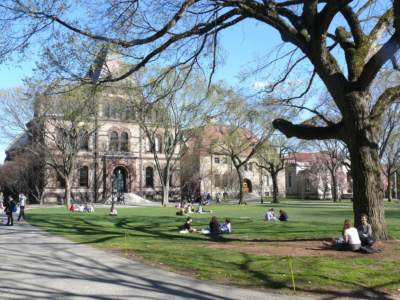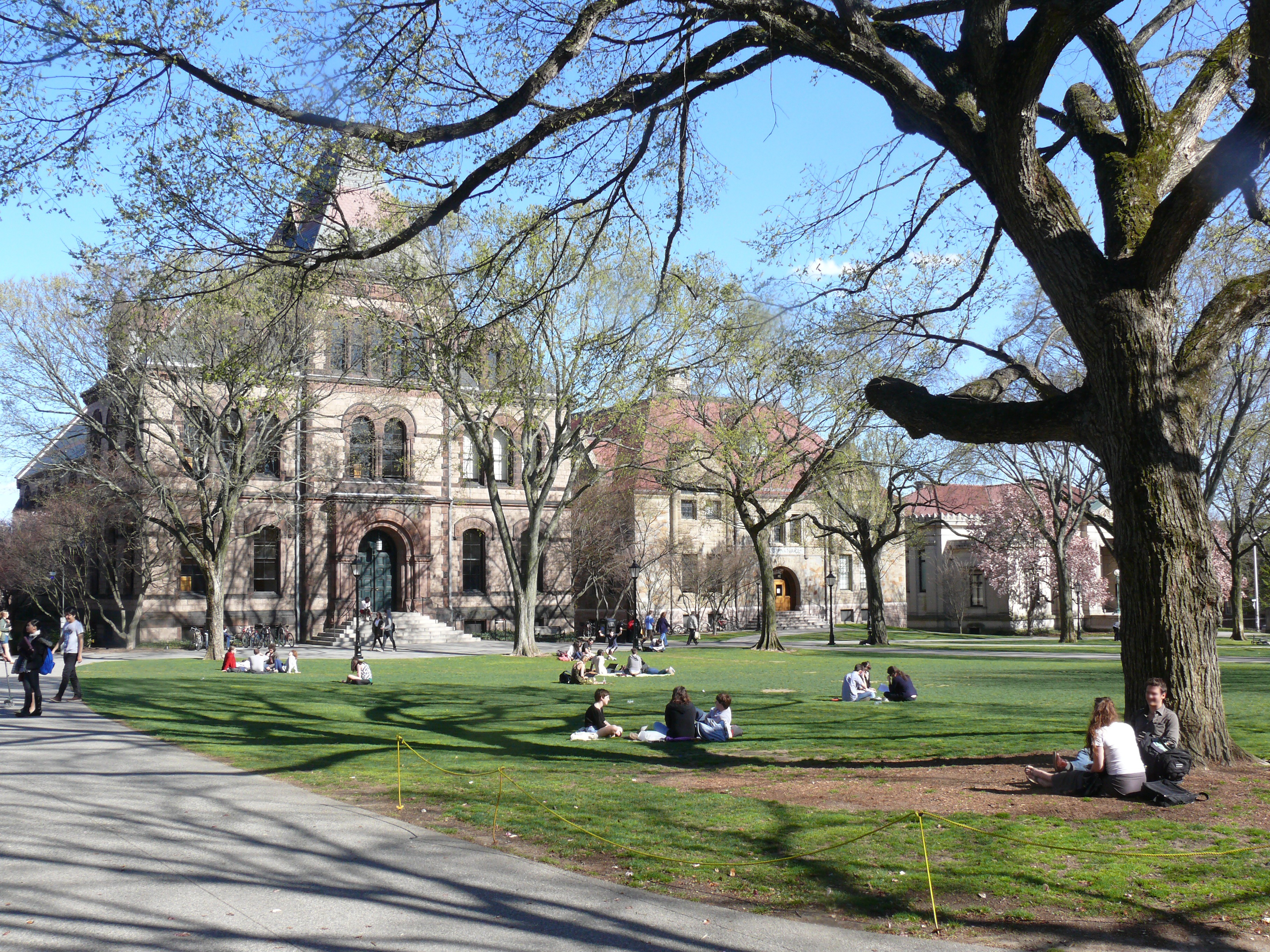It was a warm Wednesday in the fall of my first year at Brown University. As I meandered through the main green, a child with with tzitzit poking out of the bottom of his shirt walked up to me and asked, “Are you Jewish? Would you like to say a prayer or come to dinner?”
“Yes, I’m Jewish,” I said, “but I don’t want to do anything right now.” I hurried by the boy and didn’t look back.
For most of my life, this is how it tended to go when I encountered Jewish institutions; I’d listen for a moment, then disengage. As a teenager, my lack of engagement stemmed directly from lack of experience. I grew up relatively irreligious, in secular schools and communities, and in a town where being Jewish was common, if not the norm. That is to say, I grew up without much conversation about what “Jewishness” actually means, religiously, culturally, or politically.

In college, however, my ignorance quickly became apparent, especially when I was expected to have an opinion in history classes that discussed Israel/Palestine. During particularly fiery debates, eyes would swing to me, and I never knew what to say. I was expected to either be an impassioned, strident anti-Zionist or an embattled, zealous Zionist (on a campus relatively sympathetic to the Palestinian cause). My lack of experience meant that I had no idea what “being Jewish” meant as a political identity.
To make things worse, although I wanted to satisfy my curiosity about Jewish identity, I had no path forward. I had never relied on Jewish community in my childhood, and Jewish on-campus communities (including Hillel and Jewish fraternities) felt like continuations of a cultural and political education that I had never received to begin with. They seemed to be reinforcing an identity that I was unsure if I wanted to embrace. As I learned more and more about the politics of being Jewish, I increasingly felt as if those people weren’t my people — but I didn’t know which people were. It was a perfect storm of alienation, one that kept me from engaging with Jewish community and history for years, and one that I believe many of my young Jewish peers deal with every day.
After about a year and a half of this mess, I finally found a space that embraced all of my messy and disorganized feelings: a biweekly Shabbat dinner run by a group called Friday Night Jews. Every couple of weeks, ten or fifteen people gather around food and wine in someone’s living room or kitchen, say a couple prayers, and talk about some aspect of the Jewish experience. Topics are wide-ranging: one Shabbat might be reinterpreting part of the book of Leviticus and the next might be discussing radical Jewish historical role models and diasporic Jewish identity. We’ve chatted about whether/how to engage in discourse with Zionists on Israel/Palestine and dived into the complexities surrounding Ashkenazi Jews, whiteness, and Jews of color. The only common thread, really, is the critical lens that we try to apply to our own experiences and the empathy with which we engage with each other.
It’s a wide-ranging set of topics for a wide-ranging set of participants, but most importantly, it’s a space where I can sit with the fact that I don’t always know how to feel about these issues. It’s also a space of continuous learning from and with other young, searching Jews. We try to cultivate vulnerability and honesty and a willingness to admit when we’re wrong, all of which is so refreshing, especially for someone isolated from traditional Jewish institutions and narratives like me. Needless to say, I’ve become an active participant in the group.
To me, this sort of critical and lively engagement with Jewishness is what Jewish community should look like, and it’s happening independently on many college campuses across the country. That’s why I’m helping to organize the Judaism on Our Own Terms conference from August 24th through 26th in Boston this summer.
Our vision is clear-cut: to provide training, form connections, and forge a national network to help more self-determined groups like Friday Night Jews flourish on college campuses. We are creating a network for sharing resources, programming, and speakers between folks with similar values. Finally, we are creating an institutional space that engages with American Jewish identity in all its complexity, embraces diasporic tradition and history, and encourages open questioning of what it means to be Jewish. The national community we’re building is a grassroots alternative to what’s currently available to us as Jewish college students – we’re a movement of people, not just a building on campus.
It’s an often bemoaned fact that young Jews are disengaged from existing Jewish institutions, and therefore from Jewish life. The truth is, we’re just not interested in the kinds of communities those institutions are offering. That’s why we’re building our own power and creating our own communities, ones focused on the radical, Jewish traditions of solidarity and social justice that we were never taught as kids. We’re challenging the status quo, and we hope you join us.
Hal Triedman is a student at Brown University.

